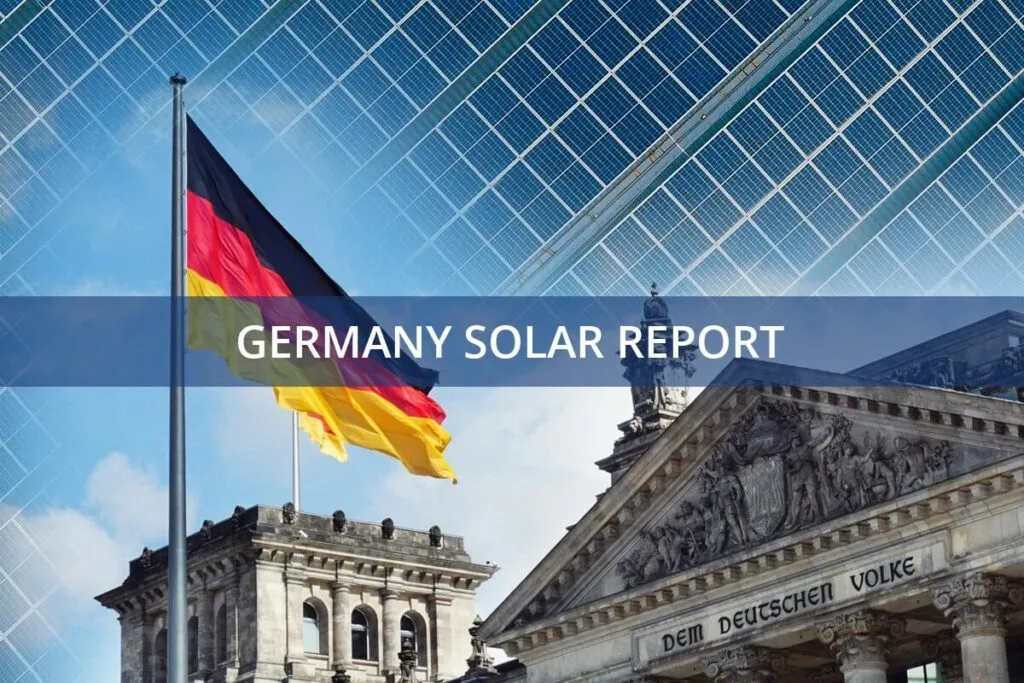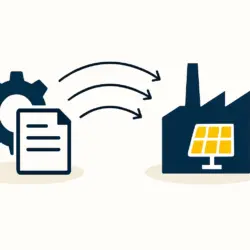Germany has made significant strides in renewable energy, achieving a noteworthy milestone with 57.2% of its electricity generated from renewable sources between January and September 2024. This represents an increase from 55.7% during the same period in 2023, signaling continued progress in the nation’s energy transition. According to reports from the German Association of Energy and Water Industries (BDEW) and the Centre for Solar Energy and Hydrogen Research Baden-Württemberg (ZSW), renewable electricity generation reached 397 billion kWh out of a total electricity demand of 694 billion kWh. This achievement underscores Germany’s commitment to sustainable energy and reducing its carbon footprint.
Wind Power Dominates Germany Renewable Energy Generation
Wind power emerged as the leading contributor to renewable energy generation, producing 211 billion kWh. This accounted for 30.4% of Germany’s total electricity demand. While still a significant portion, this represents a slight decrease from the previous year when wind power met 33% of electricity demand.
Solar power also played a crucial role. Solar power contributed 80 billion kWh, meeting 11.6% of electricity demand, an increase from 10.4% in the previous year. Biomass generated 30 billion kWh, meeting 4.3% of electricity demand, slightly down from 4.4% in 2023.
Hydropower generation experienced a decline, contributing 15 billion kWh and meeting only 2.2% of electricity demand, compared to 2.9% in 2023. Despite these fluctuations, the overall trend indicates a robust reliance on renewable energy sources.
Germany’s total electricity generation for the first nine months of 2024 amounted to 694 billion kWh, a decrease from 707 billion kWh during the same period in 2023. The BDEW attributed this decline to an economic slowdown. However, they also noted a 2.5% increase in electricity consumption, driven by the rising adoption of heat pumps and electric vehicles. For homeowners and tenants, this highlights the increasing importance of energy-efficient technologies and practices to manage costs and reduce environmental impact.
Challenges in Germany Renewable Energy Expansion
Despite the notable progress, the BDEW has voiced concerns about the pace of renewable energy expansion. To achieve the federal government’s ambitious target of 80% renewable energy by 2030, further acceleration is essential. BDEW Chairwoman Kerstin Andreae emphasized the need to ramp up wind power expansion, particularly in southern Germany, where progress lags behind the northern regions.
Investment incentives are crucial to encourage the adoption of hybrid plants that combine onshore wind and solar power with storage solutions. These hybrid systems can enhance grid stability and reliability. A faster and more efficient grid expansion is also necessary to ensure the seamless integration of renewable energy into the national grid. Streamlining grid expansion will directly benefit homeowners and tenants by ensuring a stable and reliable supply of renewable energy. Additionally, Andreae emphasized the importance of competitive market conditions to drive growth and innovation in the renewable energy sector.
Germany’s Commitment to Renewable Energy
Germany’s achievement in generating over 57% of its electricity from renewable sources in the first nine months of 2024 demonstrates its strong commitment to reducing carbon emissions and transitioning to a sustainable energy system. The German government aims to increase the share of renewable energy in electricity consumption to 80% by 2030. If this target is achieved, the dependence on high-cost fossil fuels will be reduced. The nation is on track to meet its renewable energy goals, with preliminary figures showing that renewables covered around 57% of Germany’s gross electricity consumption in the first half of 2024. Renewables cover 57% of Germany’s electricity … Wind power accounted for the largest share of renewable electricity generation (around 51%), followed by PV (24%), biomass (15%) and hydropower (8%).
However, significant challenges remain in meeting long-term renewable energy targets. Addressing these challenges is crucial to ensure a successful transition to a low-carbon economy.
The BDEW’s call for accelerated expansion and investment in renewable energy infrastructure underscores the importance of continued efforts to achieve a sustainable and resilient energy system. As Germany moves closer to its 2030 target, homeowners and tenants can play an active role by embracing energy-efficient practices, investing in renewable energy technologies like solar panels, and supporting policies that promote a sustainable energy future.



